Recent Articles
Popular Makes
Body Types
10 Most Spacious Luxury Cars
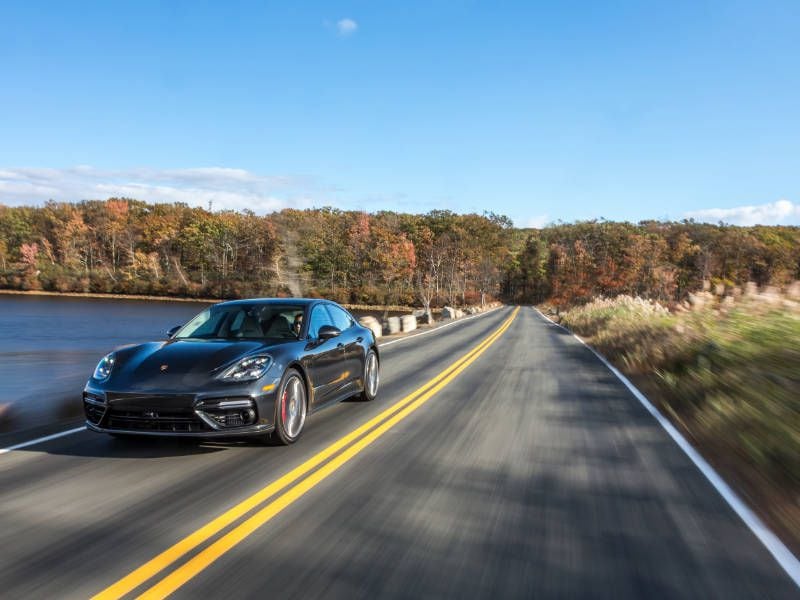
2017 Porsche Panamera Driving Hero ・ Photo by Porsche
These top 10 spacious luxury cars are all reminders that space is one of our greatest indulgences. As roads become more crowded, as cities sprawl and suburbs creep, having some area around us that is unassailable grows ever closer to being a necessity rather than an extravagance. To have space and that is furnished with nice things is even better. It improves the quality of our lives and is a tangible reward for all the hours and energies devoted to hard work. We can do it with houses and we can do it with cars. For this selection, first-hand knowledge has been added to the use of data from the Environmental Protection Agency (EPA), because rear legroom is more than just a number.
2018 Audi A8
Right now (mid-2017) information on the imminent 2018 A8 is scant, but let’s assume the company won’t make the new generation of its flagship sedan appreciably smaller than the outgoing model. The long wheelbase version of the 2017 A8 enjoys 121.9 cubic feet of passenger volume, which includes 42.9 inches of rear legroom. There’s also 14.2 cubic feet of cargo space in the trunk. In the big picture, this all comes under the heading of “generous.” When the fifth generation is unveiled in summer 2017, a lot of technology is expected, including various self-driving features, plus a plug-in hybrid at some point. This is a demanding segment where car makers really have to pull off something special.
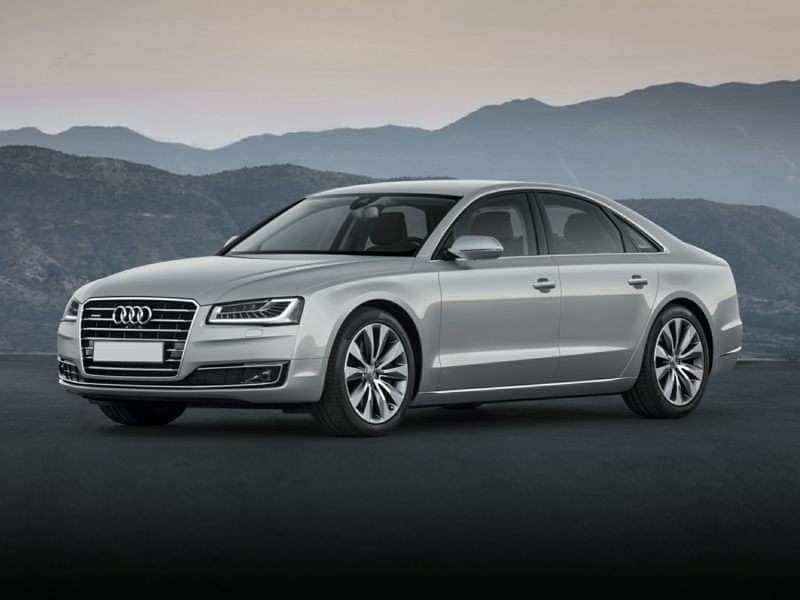
Photo by Audi
2017 BMW 7 Series
It doesn’t say so in the badges, but the only 7 Series cars that BMW brings over to the United States are the long-wheelbase versions. It may not feel that way from the driver’s seat because it’s remarkably agile for a large luxury sedan. But jump into the rear section and the 7 Series takes on another character, where occupants are treated like first-class air travelers. Total passenger volume is 114 cubic feet, with rear legroom measuring 44.4 inches. It’s also possible to move the front passenger seat forward from the comfort of the back seat. And beneath the standard-issue powered trunk lid is a cavernous 18.2 cubic feet of luggage space.
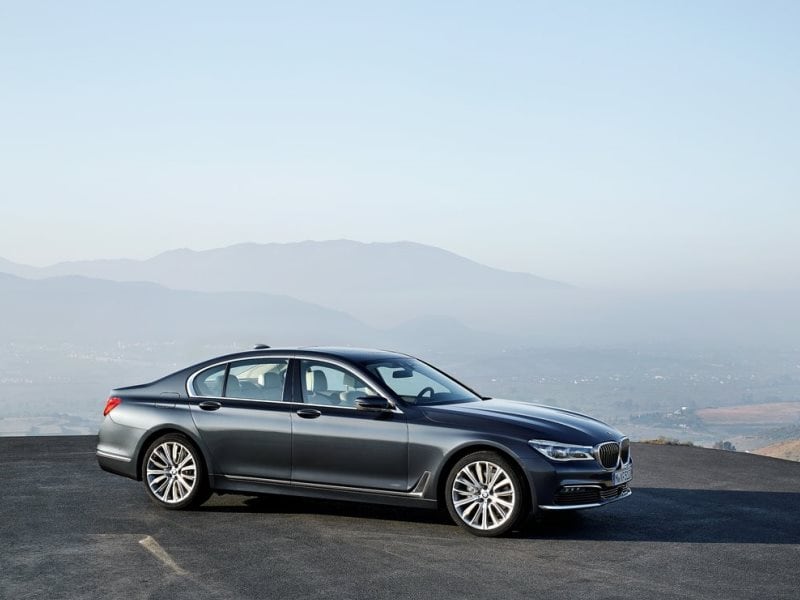
Photo by BMW
2017 Buick LaCrosse
Entry-level luxury is still luxury of a kind. Buick has been raising its game over the past few years and the new-for-2017 LaCrosse full-size sedan is a perfect example. Here is a car with looks, quality and space that could perhaps sway buyers away from Lincoln, which is accepted as a marque on a higher level. Within the 102 cubic feet of passenger volume, there is rear legroom of 40 inches — that’s great for a car that has a regular-length wheelbase. And working on the premise that one bag of golf clubs takes up about four cubic feet of space, then the 15 cubic feet in the LaCrosse’s trunk might even squeeze in four sets.
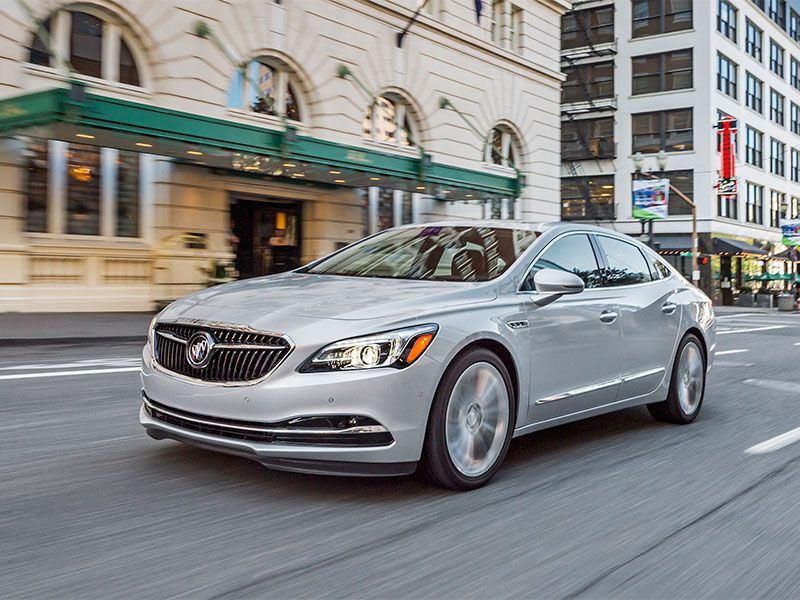
Photo by Buick
2017 Cadillac CT6
This is Cadillac’s still new (debuted for 2016) flagship sedan. The clever thing about it, apart from the fact that it’s generally worthy of consideration against even the best of the class, is packaging. That doesn’t sound particularly sexy, but when there’s 110 cubic feet of passenger volume, 40.4 inches of rear legroom and 15.3 cubic feet of trunk space in a car that can be appreciably lighter than the competition, then the subsequent benefits in handling and economy make the CT6 even more attractive. Despite excellent cars in the mid-size and compact levels (the CTS and ATS respectively), Cadillac has never really had a credible contender in the big sedan class. Now it does.
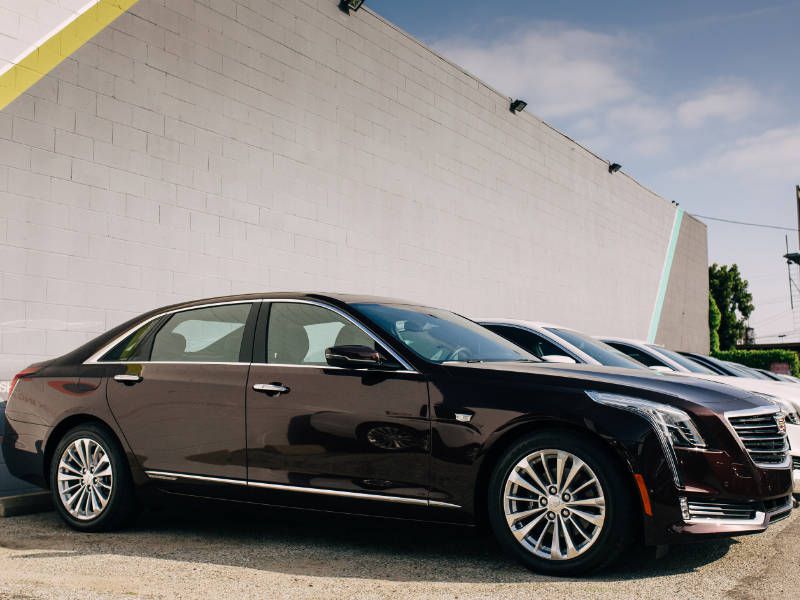
Photo by Cadillac
2017 Genesis G90
When Hyundai spun off its most luxurious cars into the new Genesis brand, it updated and repurposed the Equus large sedan to become the flagship. It’s indeed spacious, with rear legroom of 37.8 inches being just one aspect of the 113.2 cubic feet of passenger volume. Considering the average inseam measurement of a 6-foot male is 34 inches, that’s almost enough leeway for a pair of clown shoes. One area where the G90 doesn’t create empty space, though, is the piggy bank. Because it’s similar in price to a well-optioned mid-size premium sedan from Germany. Going for a European full-size equivalent would definitely create a substantial clearing in the savings account.
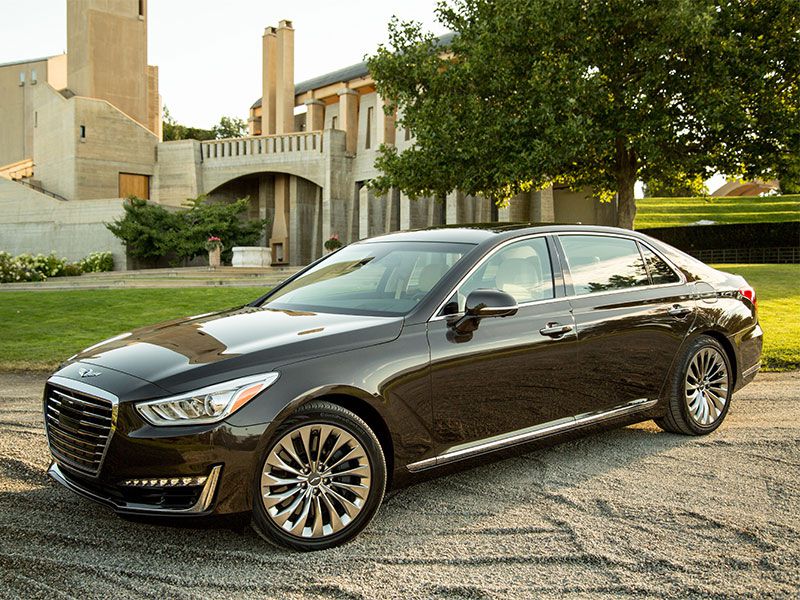
Photo by Genesis
2017 Jaguar XJL
Even though this generation of XJ, Jaguar’s largest sedan, is becoming the grand old statesman of its segment, it still has some considerable power to wield when it wants. Just try following the 550-hp supercharged long-wheelbase XJR version in only a mainstream sedan. The other side of this glorious British coin, however, is a refined and roomy cabin replete with wood and leather. The long-wheelbase model (124.3 inches, compared with the regular XJ’s 119.4) encompasses 109 cubic feet of passenger volume, including 44.1 inches of rear legroom. With a trunk of 15.2 cubic feet, there’s probably enough space for a whole suit of armor. The Brits have a word to describe Jaguar cars — majestic.
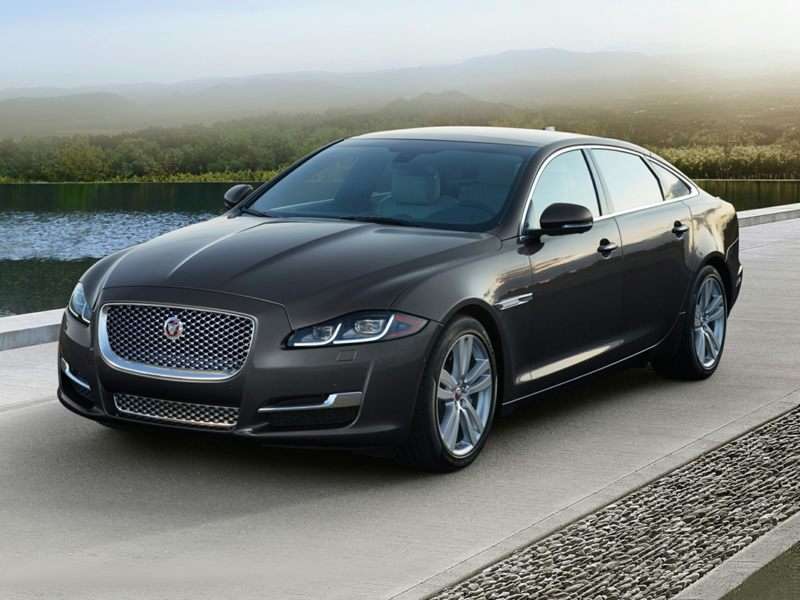
Photo by Jaguar Land Rover
2018 Lexus LS
The next generation of the Lexus LS is arriving later in 2017. The original LS was the flagship sedan that started the whole Lexus experiment, which has turned out to be wildly successful. Now the range has expanded to include hybrids and long-wheelbase variants. This wave will follow suit. The stretched version of the 2018 LS is 1.3 inches longer than its predecessor, so it’s not unreasonable to expect total passenger volume in the region of 103 cubic feet. Access to that space is also easy — the air suspension raises the car and the seat bolster opens to receive occupants. The rear seat can recline up to 48 degrees and will even elevate to help the passenger make a graceful exit.
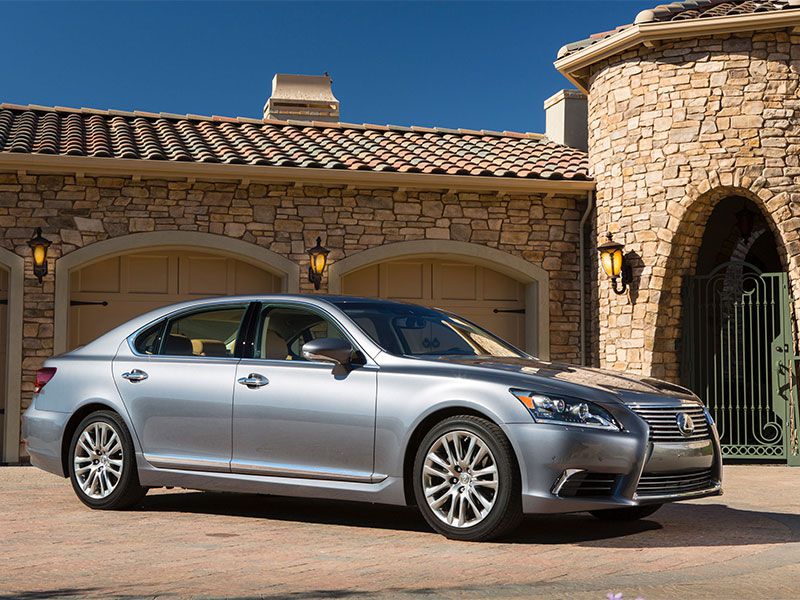
Photo by Lexus
2017 Mercedes-Maybach S600
Mercedes-Benz doesn’t quote any rear legroom figures for this super-plush conveyance. Perhaps it doesn’t want to brag. But take it from us, it’s really spacious. And there are so many interesting and thoughtful touches, like the tiny microphone up front that sends voices through the audio system’s speakers, so people in the back can hear what’s being said (that’s how big the cabin is — 120 cubic feet of passenger space, according to the EPA). The standard setup has three rear seats, but the true luxury experience has just two chairs, with a refrigerator and handcrafted silver champagne flutes. Add deep pile carpet and an air ionizing system, and you may never want to leave.
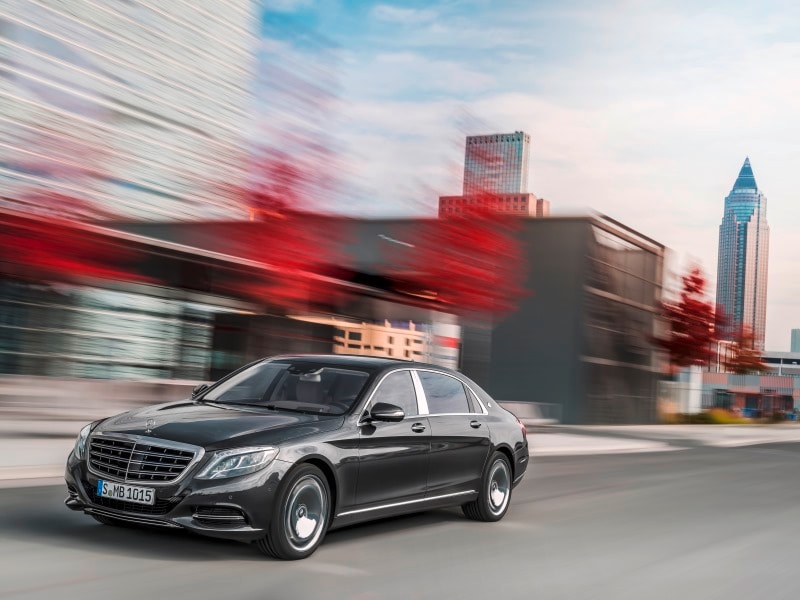
Photo by Mercedes-Benz
2018 Porsche Panamera Executive
The regular Panamera debuted its second generation for 2017 and, like the previous model, there’s going to be a long-wheelbase Executive version. It will stretch the wheelbase by 5.9 inches, so 6-footers should be able to sit in the back with room to spare. The regular Panamera already has 108 cubic feet of passenger space and the car’s hatchback design brings extra versatility. Behind the rear seats is a considerable 17.4 cubic feet of trunk space. With those seats folded down, that increases to a massive 46 cubes, or 52.3 in the Executive. And this is all on top of the exceptional dynamics, glorious engines, and gorgeous interiors.
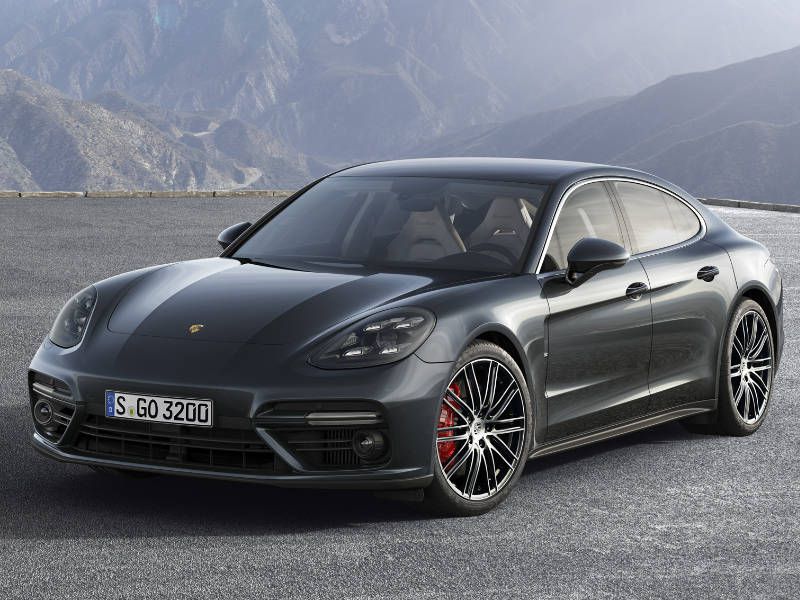
Photo by Porsche
Even though the S90 has only been out for a year, the 2018 model is going to be subtly different from the 2017 version. Its wheelbase will have been stretched by 4.7 inches, the vast majority of which is going directly to provide more rear legroom than the current model’s 35.9 inches. Even though no one complained that this large sedan was too cramped in the back. As BMW does with its 7 Series and Mercedes-Benz with its S-Class, the only version of the S90 on sale in the United States will be this long-wheelbase version. It’s also anticipated to become even more luxurious for rear passengers, thanks to the options of massaging seats and powered sunshades.
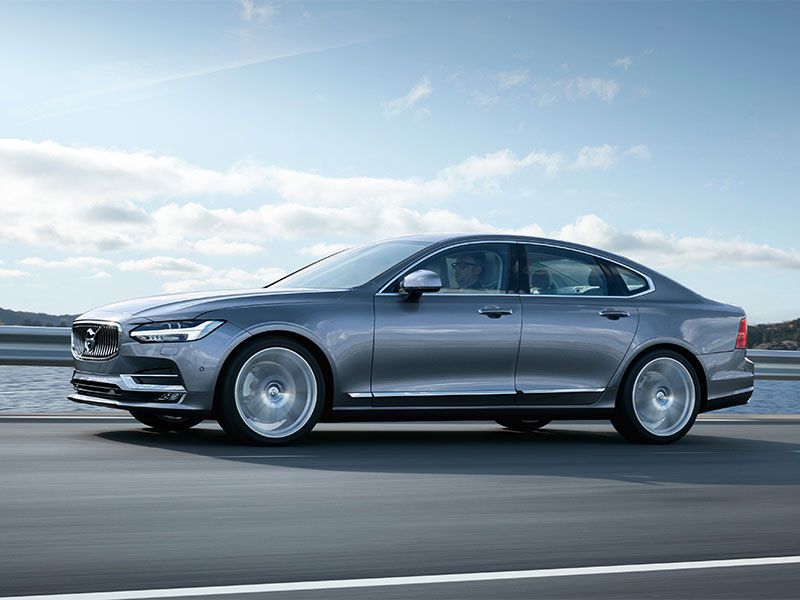
Photo by Volvo